Nursing in Derby: Studying, working and living guide
Find out about nursing in Derby - where nurses can find jobs, the hospitals they might work in, colleges & universities to study in, plus living information.
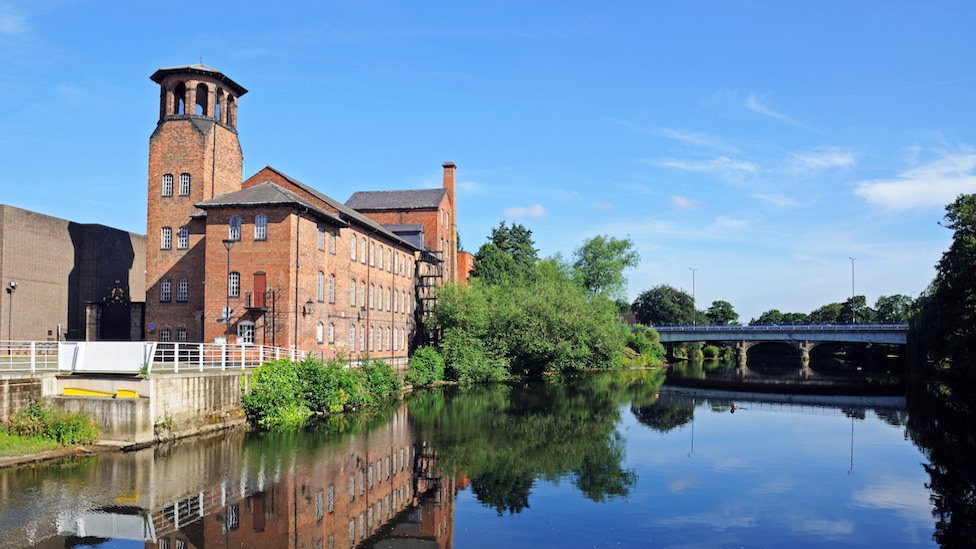
Derby is one of the UK’s best kept secrets for studying, working, and living. It’s well located, affordable, fun, historic, multicultural – and in many ways ticks more boxes than most UK cities.
That makes it a fantastic place to put down roots as a nurse, with excellent working opportunities to boot.
So, here is our guide to living and working in Derby as a nurse. From cost of living and travel through to culture and nightlife, it offers in-depth advice for nurses wanting to study or work in Derby.
Where do nurses work in Derby?
There are a number of NHS and private hospitals, care homes and other healthcare organisations in Derby, specialising in support for the elderly as well as young people and younger adults.
They frequently look for Nursing and Midwifery Council (NMC) registered Nurses.
Some of these employers are:

Royal Derby Hospital

Florence Nightingale Community Hospital
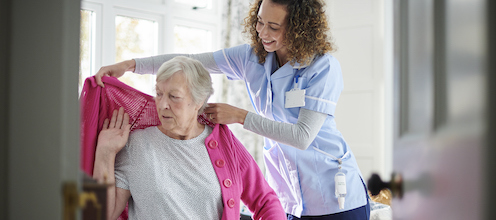
Nuffield Health Derby Hospital
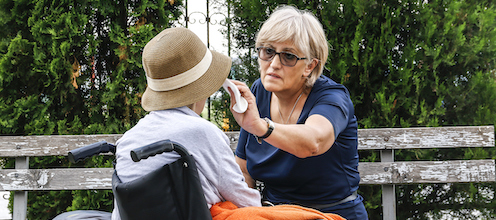
Derby Private Health
The biggest NHS employer of nurses in Derby is the Royal Derby Hospital. It’s managed by the University Hospitals of Derby and Burton NHS Foundation Trust. There is also the Florence Nightingale Community Hospital, formerly known as the London Road Community Hospital.
There are hundreds of jobs listed for nurses in Derby across different specialisms, including adult nursing, mental health nurses, theatre nurses, health and social care and more.

Where can aspiring nurses study in Derby?
If you’re wanting to study nursing in Derby, you’ll study at the University of Derby.
It has start dates available in both March and September and an excellent reputation for its nursing programmes, with very high graduation and student satisfaction rates. The university in Derby is currently in the top 20 universities to study nursing according to The Guardian’s league table.
And although tuition fees are the same across the country, Derby is regarded as one of the more affordable locations for aspiring nurses to live.
Find our nursing university guide here.
According to Zoopla, the average monthly rental costs for students in Derby, including bills, is £1084 – around half the cost of places like Oxford, Brighton, and London.
Where do nurses live in Derby?
There are lots of lovely areas to live within Derby, and as a relatively affordable and easy-to-navigate city, you can approach every area with an open mind.
For families and nursing students, the most popular areas to live are:
Ashbourne Road
A great spot for students looking to live affordably but also get fast and simple access to the University of Derby and city centre.
Littleover
A popular area for families; it is considered to be safe, and full of good family homes with decent-sized gardens.
Uttoxeter New Road
Has a good amount of student flats and houses to rent, again at very affordable prices. Only a 20-minute walk into the city centre.
Allestree
A slightly quieter location. It’s around two miles from the city centre – easily accessible both by bus and rail.
As you can see, there is a good selections of neighbourhoods for nurses to call home in Derby.

What are the living costs for nurses in Derby?
As mentioned, Derby is definitely one of the more affordable places to both train and practice as a Nurse – even for newly qualified nurses.
Here’s a broad guide to some of the different costs of living in the city.

The average property price in Derby is £229,300 at the time of writing. That’s considerably lower than the national average, which is around £310,000. In fact, the average cost for a terraced house is under £164,000 – which, compared to other cities around the UK, is a bargain.
That means, with enough money saved for a deposit, even a Newly Qualified Nurse would have a good chance of getting a mortgage on a home in Derby.

The average rental cost for a one-bedroomed flat in Derby is around £611 a month. Meanwhile, renting a room in a house is likely to cost an average of around £400 a month.
Again, this compares very favourably to national averages – and leaves even a newly qualified Nurse with some disposable income after bills.

Council tax costs do vary across the city. But the majority of people are in a Band A property or similar, which currently means paying £1245.35 a year – or just over £100 a month. That’s according to the latest stats from Derbyshire County Council.

Other bills like shopping and utilities are at a similar level to the rest of the UK, but eating out and entertainment compare favourably.
Derby is renowned as a very affordable city, and a night out or meal in a restaurant is typically far cheaper than many other British towns and cities.
Put simply, a Band 5 or 6 nursing salary is likely to go much further in Derby.
Is travel easy in Derby?
Derby is the UK’s most central city. It’s only a 90-minute train from London, or a 30-minute train from major cities like Nottingham, Leicester and Birmingham. The M1 is also nearby, offering quick access by car to the north or south.
And East Midlands Airport, located just south of Derby, connects the county to 80 worldwide destinations.
It’s also a relatively small city, meaning that wherever you live, getting to the University of Derby, the city centre, or your place of work should be relatively simple. Furthermore, Derby’s bus services are some of the best-rated in the UK.
Good travel options is another box ticked for Derby.
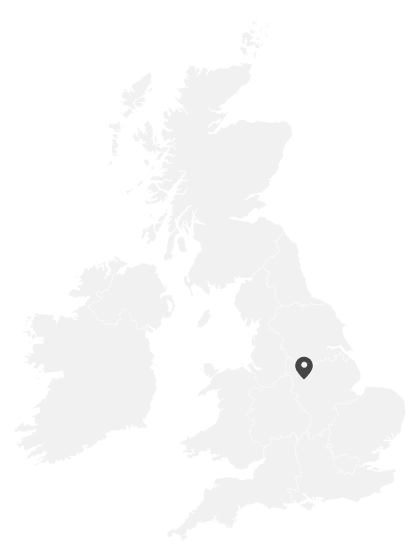
What is there to do in Derby?
Derby is a vibrant and multicultural city, with lots to offer people of all ages and tastes.
Here’s a brief summary of what you can expect…
Culture and attractions
In Derby there’s a vibrant music and arts scene. The Assembly Rooms, Guildhall Theatre and more offer a wide spectrum of events including folk festivals, jazz, comedy, theatre and more. Other venues, like QUAD, are well-established contemporary cultural centres showcasing visual arts, independent film and more.
There’s also the Derby Museum of Making, which opened in 2021 on the site of the Derby Silk Factory- said to be the world’s first modern factory. It celebrates the area’s history as centre of innovation during the industrial revolution.
On top of that, there is Derby Cathedral, the renowned Derby Museum and Art Gallery, and a couple of fantastic city parks – both Darley Park and Markeaton Park are beloved by locals and visitors alike.
Derby County Football Club (known as ‘The Rams’) play their matches within Derby at Pride Park Stadium, and Derbyshire Cricket Club also play in Derby, at the historic County Ground.
As for the rest of Derbyshire, there’s a lot to cover. Chatsworth House is regularly cited as one of the UK’s most popular stately homes and is frequently used in film and television. Bolsover Castle is also very popular, and elsewhere in the county there is everything from historic steam railways to roman forts.
Nightlife and eating out
Derby is a real hub of nightlife, especially with a large student population. In terms of eating out, you’re spoilt for choice. From gastropubs to upmarket eateries, there is something for everyone.
Highlights include:
Darleys, a multi-award winning restaurant overlooking the River Derwent
Bistrot Pierre, Ranked within the top 10% of restaurants on Trip Advisor worldwide
Ebi Sushi, an unassuming, made-to-order sushi bar that experts say offers some of the best sushi and sashimi anywhere in the UK
The Dining Room 121, a high-end restaurant that’s receiving rave reviews
This only scratches the surface; there is a wide range of nightlife venues and eateries for all tastes and budgets in the city.
What are the school options in Derby?
If you’re weighing up school options too, Derby has some good options.
There are 77 primary schools in the city, and 28 secondary schools. Most of these are run by the state.
There are 13 primary schools that are rated outstanding in Derby alone – which is a very high proportion for a relatively small city.
In terms of secondary schools, Littleover Community School is the best rated in the whole of Derbyshire.
There is a great selection of schools across the city, providing varied curriculums.
Population and demographics in Derby
Here are some of the stand-out population and demographic facts for Derby:
Derby has a population of over 250,000 people
Derby has an age range similar to the rest of the UK, although it’s slightly younger than the average region
It is located 130 miles from London and is considered to be one of the most central city in the UK
Derby has a population density of 3,347 people per km2
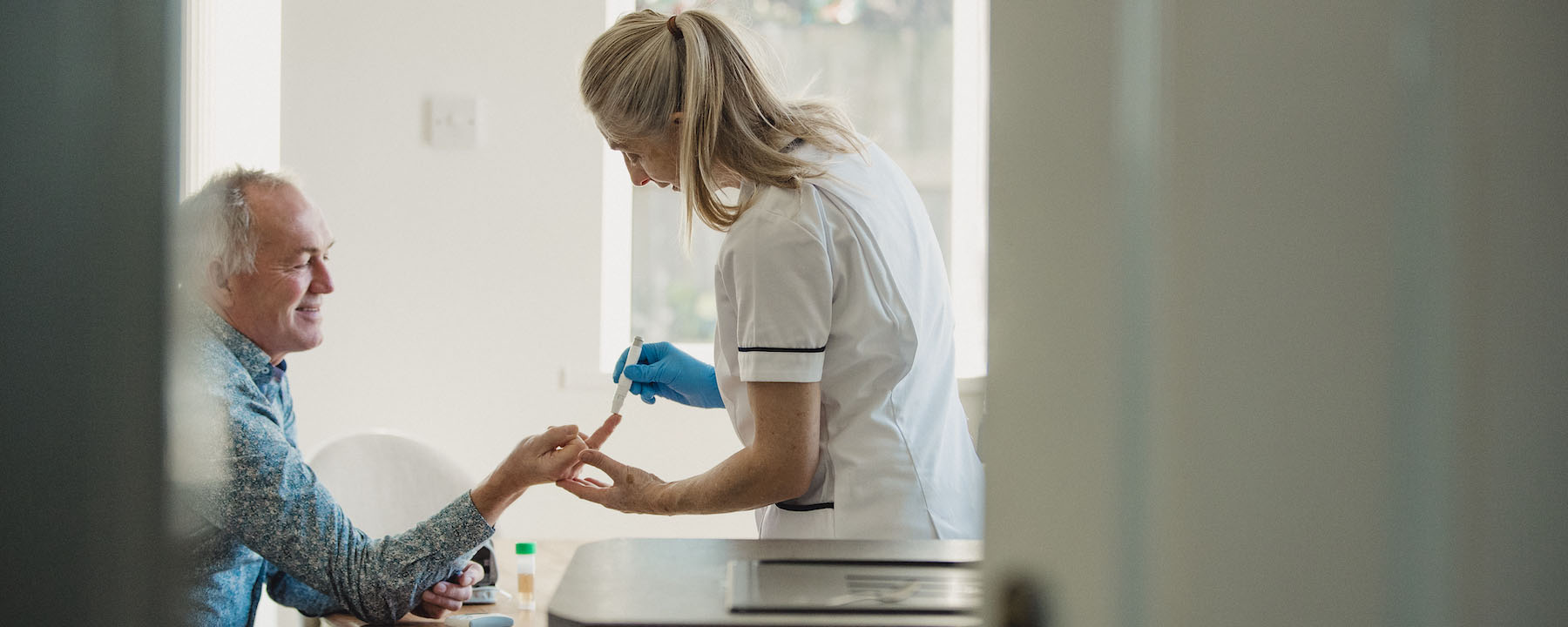
In summary: is Derby a good place to be a nurse?
Derby is a great place to be a nurse, whether you’re experienced, just registered or a Student Nurse.
It’s vibrant and diverse, with loads to do and see. It has history, fantastic parks, good nightlife, and a wonderful sense of community. There’s a real multicultural feel, helped by the many international students the university attracts too.
It also has plenty of options in terms of opportunities and job roles, which you can check out here.
And perhaps best of all, it is an affordable place to live. In short, your salary as a Registered Nurse goes much further in Derby.
Here are a couple of examples:
As a Newly Qualified Nurse on an NHS Band 5 salary, if you rented a room in a shared house, you’d likely still have more than £1000 left in your pocket each month for everything else. This is probably twice as much as you would have in the south-east of England.
As a Band 6 nurse, you’d easily be able to borrow enough money alone to buy an average-priced flat or even terraced house in Derby. In fact, even if you’re a Newly Qualified Nurse, if you’re lucky enough to have a deposit you’d probably be able to afford a flat in the city.
While in some parts of the country an NHS nursing salary can feel inadequate, in Derby you’re likely to feel much more comfortable.




